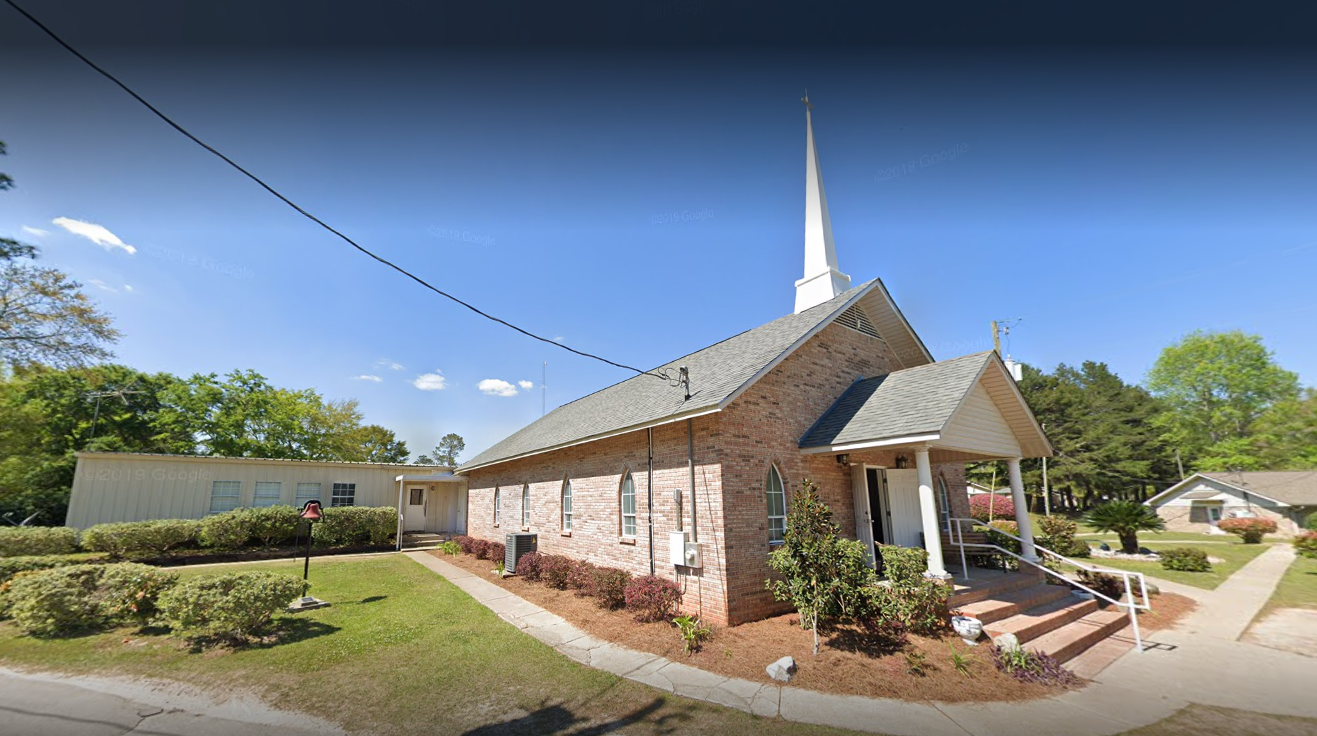Overview
Mission of Hope is a nonprofit, faith-based residential addiction recovery program located in Mobile, Alabama. The organization provides comprehensive residential treatment for adult men, women, and women with young children, across three campuses that collectively serve more than 150 clients. Mission of Hope is dedicated to breaking the chains of addiction through the transformative power of Jesus Christ, focusing on spiritual, physical, and emotional restoration.
The Men's Campus, situated on 40 private acres in west Mobile County, offers housing and recovery services to up to 100 men struggling with drug and alcohol addiction. The treatment program emphasizes developing a relationship with Jesus Christ and finding healing through the Gospel message and biblical principles.
The Taylor House & Heritage Haus provide residential treatment for 32 women, including mothers with young children who can bring their children with them to the campus. This environment supports women in their recovery journey while also addressing their responsibilities as mothers.
The Moffett Road campus serves as a men's halfway home, housing 11 clients plus staff. This residence is designed for men who have graduated from the recovery program and need continued support to transition back into society. It offers Christian accountability and ongoing support as the men continue their recovery journeys.
One of the unique aspects of Mission of Hope is that it offers its services free of charge. The nonprofit organization receives donations from churches, businesses, and individuals to cover the costs of treatment, ensuring that financial barriers do not prevent anyone from receiving the help they need. If additional recovery services and support are required from outside resources, those entities may be in-network with major insurance providers. Clients are advised to confirm coverage with their individual providers, as out-of-network benefits may vary.
Mission of Hope Ministries has been helping men and women break their chains of addiction through Jesus Christ for 52 years. The organization is committed to seeing individuals restored spiritually, physically, and emotionally through the Gospel and the love of Jesus Christ. Their mission statement, "breaking chains of addiction through our Lord Jesus Christ," reflects their focus on spiritual transformation and holistic healing. The program honors the opportunity to lift up those struggling with addiction and teach them about the redeeming and transforming power of Jesus Christ.
By providing a supportive and faith-based environment, Mission of Hope empowers individuals to overcome addiction and rebuild their lives. The organization's dedication to offering free services ensures that everyone, regardless of their financial situation, can access the help they need. Through their comprehensive approach, Mission of Hope continues to make a profound impact on the lives of those they serve, fostering lasting recovery and spiritual growth.
Mission of Hope at a Glance
Payment Options
- No payment accepted
- Self-pay options
- Cash or self-payment
Assessments
- Comprehensive substance use assessment
Age Groups
- Young adults
- Adults
Operation
- Private non-profit organization
Treatment At Mission of Hope

Conditions Treated
Alcoholism:
Alcohol addiction is a health problem where drinking takes control over a person's life. It affects how their brain thinks and acts, leading to strong desires to drink, bad feelings, sudden actions, and discomfort when not drinking. To help someone with this problem, there are treatments like detox, counseling, group support, and learning coping methods. While treatment can't completely cure the urge to drink, it helps people regain control of their lives and feel better overall.
Opioid Addiction:
Opioid rehabs specialize in supporting those recovering from opioid addiction. They treat those suffering from addiction to illegal opioids like heroin, as well as prescription drugs like oxycodone. These centers typically combine both physical as well as mental and emotional support to help stop addiction. Physical support often includes medical detox and subsequent medical support (including medication), and mental support includes in-depth therapy to address the underlying causes of addiction.
Substance use treatment:
Substance abuse treatment programs can help to address addiction and, if relevant, any co-occurring mental health conditions. Programs include outpatient, inpatient, dual-diagnosis, and partial hospitalization. The addict will receive therapies like cognitive behavioral therapy, or dialectical behavioral therapy, and sometimes complementary therapies like acupuncture and mindfulness-based therapy. By attending skills training and recovery groups you’ll build a strong foundation for your recovery and strengthen your support network, increasing your chances of long-term recovery success.
Co-occurring Disorders:
Dual-diagnosis rehabilitation centers focus on treating individuals with simultaneous mental health and substance use disorders. The intertwined nature of addiction and mental health issues can intensify each other's symptoms, complicating recovery. These centers provide a holistic treatment strategy addressing both conditions together, often encompassing thorough evaluations, a blend of therapeutic methods, family counseling, and post-treatment care.
Mental health treatment:
Mental health facilities offer a safe space for individuals to get specialized care. Trained experts create personal plans using therapies, possibly including medication. The goal is to help individuals cope better and lead fulfilling lives, with constant support and a community feel.

Levels Of Care
Detoxification:
Detoxification, often called detox, is like a reset button for the body after someone has been using drugs or alcohol. Its main job is to help people who want to quit these substances by easing the discomfort they might feel when they stop. Think of it as a way to clean out the harmful stuff in the body when someone has been using drugs or alcohol too much. Detoxification aims to make the process of quitting safer and less painful for the person.
Hospital inpatient treatment:
Inpatient treatment involves a comprehensive residential therapeutic program where patients stay on-site for a duration typically ranging from 30 to 90 days. This immersive environment offers structured support, ensuring safety and a focus on recovery. Therapies provided include individual and group counseling, cognitive-behavioral therapy, holistic treatments, family therapy sessions, and experiential therapies. The aim is to address addiction or mental health disorders' physical, emotional, and psychological aspects, laying a robust foundation for sustained healing.
Hospital inpatient detoxification:
Hospital Inpatient Detoxification offers a specialized medical intervention tailored for individuals navigating the challenging process of withdrawal from addictive substances, including alcohol and drugs. Central to its design is the provision of 24/7 medical oversight by a team of interdisciplinary professionals to address any emergent complications and ensure patient safety during the critical detox phase.

Treatment Modalities
Individual psychotherapy:
In individual therapy, a person engages in a one-on-one session with a qualified therapist or counselor. This therapeutic approach is crucial in successful substance abuse treatment because it delves into the underlying causes of addiction, addressing issues the individual may encounter in their familial, social, and professional or academic environments.
Group counseling:
Group therapy entails therapeutic sessions conducted in a collective setting rather than one-on-one. It encompasses various modalities, from support groups and experiential therapy to psycho-education and beyond. The approach focuses on treatment and emphasizes the dynamic interactions and shared experiences among group members.
Family counseling:
Family Counseling is a therapeutic service that addresses and resolves conflicts, improves communication, and fosters better relationships within a family unit. Through guided discussions, a trained counselor helps family members gain insight into their dynamics, learn coping strategies, and work towards creating a harmonious living environment. Family Counseling can be a significant step towards improving the overall emotional health and interactions among family members, helping them navigate challenges together in a supportive and constructive manner.
Marital/couples counseling:
Whether a marriage or other committed relationship, an intimate partnership is one of the most important aspects of a person's life. Drug and alcohol addiction affects both members of a couple in deep and meaningful ways, as does rehab and recovery. Couples therapy and other couples-focused treatment programs are significant parts of exploring triggers of addiction, as well as learning how to build healthy patterns to support ongoing sobriety.
Contact Information
DISCLAIMER: The facility name, logo and brand are the property and registered trademarks of Mission of Hope, and are being used for identification and informational purposes only. Use of these names, logos and brands shall not imply endorsement. BetterAddictionCare.com is not affiliated with or sponsored by Mission of Hope.


